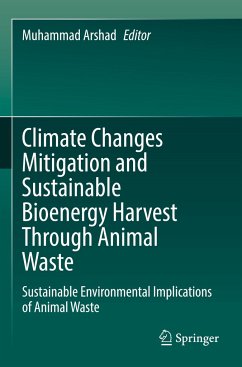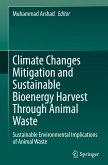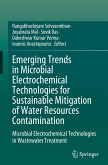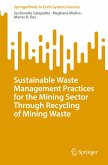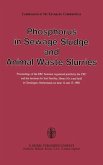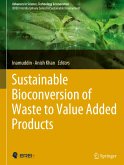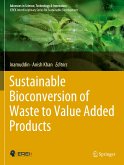The valuable characteristics of animal waste materials in terms of climatic change impact and bioenergy production are discussed in this book. Reutilization of such wastes for bioenergy harvest is the prime focus; the great need for future animal waste recycling is also depicted.
Major topics discussed are types of livestock waste - poultry and dairy, methods and management of waste utilization and storage, application of animal waste in bioenergy production, economics of waste utilization, novel disposable techniques, circular bioeconomy, pollution, and water quality. Furthermore, utilization of animal waste for resource conservation and environmental protection is discussed, such as potential materials for green biochemicals. Resource recovery can, therefore, forestall the shortage of natural resources and, at the same time, can greatly reduce waste-disposal problems and energy crises. Many alternatives to waste disposal, either currently available or under study, focus on the recovery of material or energy. In a world of diminishing resources and increasing needs, each opportunity for the recycling of animal waste materials has been examined.
This book significantly contributes toward climate change mitigation through better environmental solutions. A better understanding of animal waste recycling to mitigate climate changes has been portrayed in order to generate discussions among researchers and administrators. Environmental implications of animal waste are of prime importance in climate change scenario. Such wastes also harbor zoonotic pathogens that are transported in the environment.
Finally, it has been tried out to collect ideas and experience in multiple aspects of animal waste management for climate change mitigation and bioenergy harvest.
Major topics discussed are types of livestock waste - poultry and dairy, methods and management of waste utilization and storage, application of animal waste in bioenergy production, economics of waste utilization, novel disposable techniques, circular bioeconomy, pollution, and water quality. Furthermore, utilization of animal waste for resource conservation and environmental protection is discussed, such as potential materials for green biochemicals. Resource recovery can, therefore, forestall the shortage of natural resources and, at the same time, can greatly reduce waste-disposal problems and energy crises. Many alternatives to waste disposal, either currently available or under study, focus on the recovery of material or energy. In a world of diminishing resources and increasing needs, each opportunity for the recycling of animal waste materials has been examined.
This book significantly contributes toward climate change mitigation through better environmental solutions. A better understanding of animal waste recycling to mitigate climate changes has been portrayed in order to generate discussions among researchers and administrators. Environmental implications of animal waste are of prime importance in climate change scenario. Such wastes also harbor zoonotic pathogens that are transported in the environment.
Finally, it has been tried out to collect ideas and experience in multiple aspects of animal waste management for climate change mitigation and bioenergy harvest.

